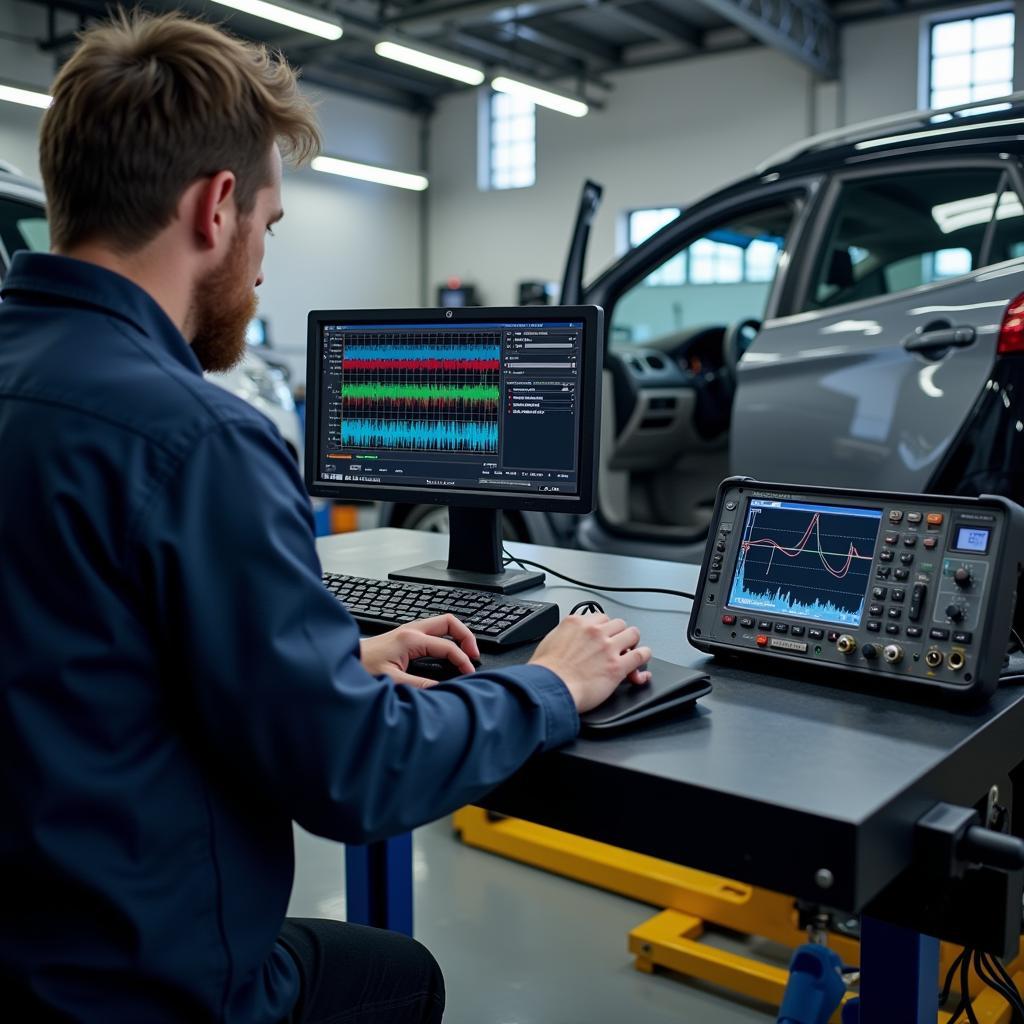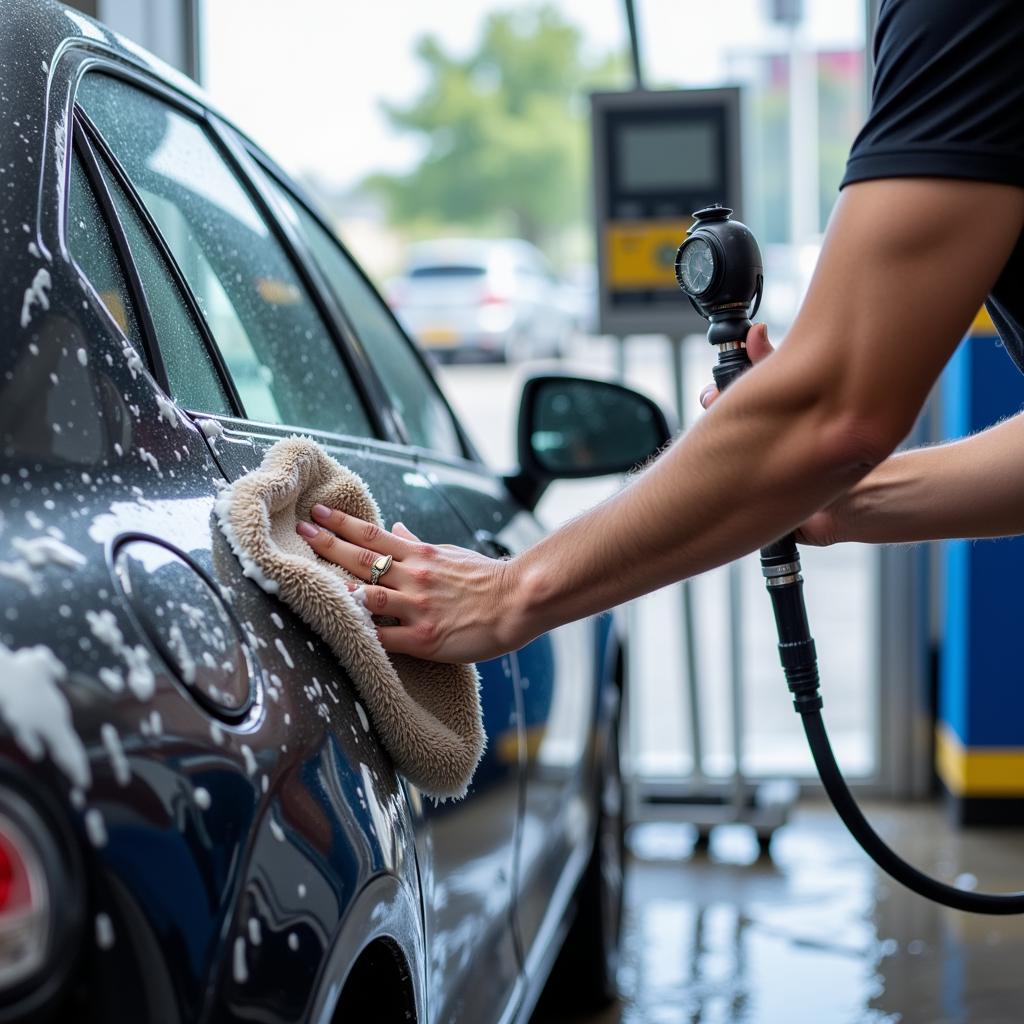When Will Consumer Portfolio Services Repo My Car?
Understanding when Consumer Portfolio Services (CPS) might repossess your car is crucial if you’re facing financial difficulties. Falling behind on car payments is a stressful situation, and knowing the potential triggers for repossession can help you prepare and explore your options. This article provides a comprehensive guide to understanding CPS’s repossession policies and what you can do to avoid it.
Understanding Consumer Portfolio Services and Repossession
CPS is a subprime auto finance company, meaning they lend to individuals with less-than-perfect credit. While they offer financing opportunities to those who might be turned away by traditional lenders, their loans often come with higher interest rates and stricter terms, including repossession policies. Repossession is the legal process of a lender taking back possession of a vehicle when the borrower defaults on their loan agreement, typically due to missed payments.
How Many Missed Payments Before CPS Repossesses?
There’s no magic number of missed payments that guarantees repossession. While some lenders might initiate repossession after one missed payment, it’s more common for lenders like CPS to take action after two or three consecutive missed payments. However, even one missed payment can trigger late fees and negative reporting to credit bureaus, damaging your credit score.
What Factors Influence CPS’s Decision to Repossess?
Several factors can influence when CPS decides to repossess a vehicle, including:
- Your payment history: A history of consistently missed or late payments increases the likelihood of repossession.
- Communication with CPS: Open communication with CPS is crucial. If you’re experiencing financial hardship, reaching out to them to discuss your situation and explore options like forbearance or a revised payment plan can prevent repossession.
- State laws: Repossession laws vary by state, and CPS must adhere to the regulations in the state where the loan originated.
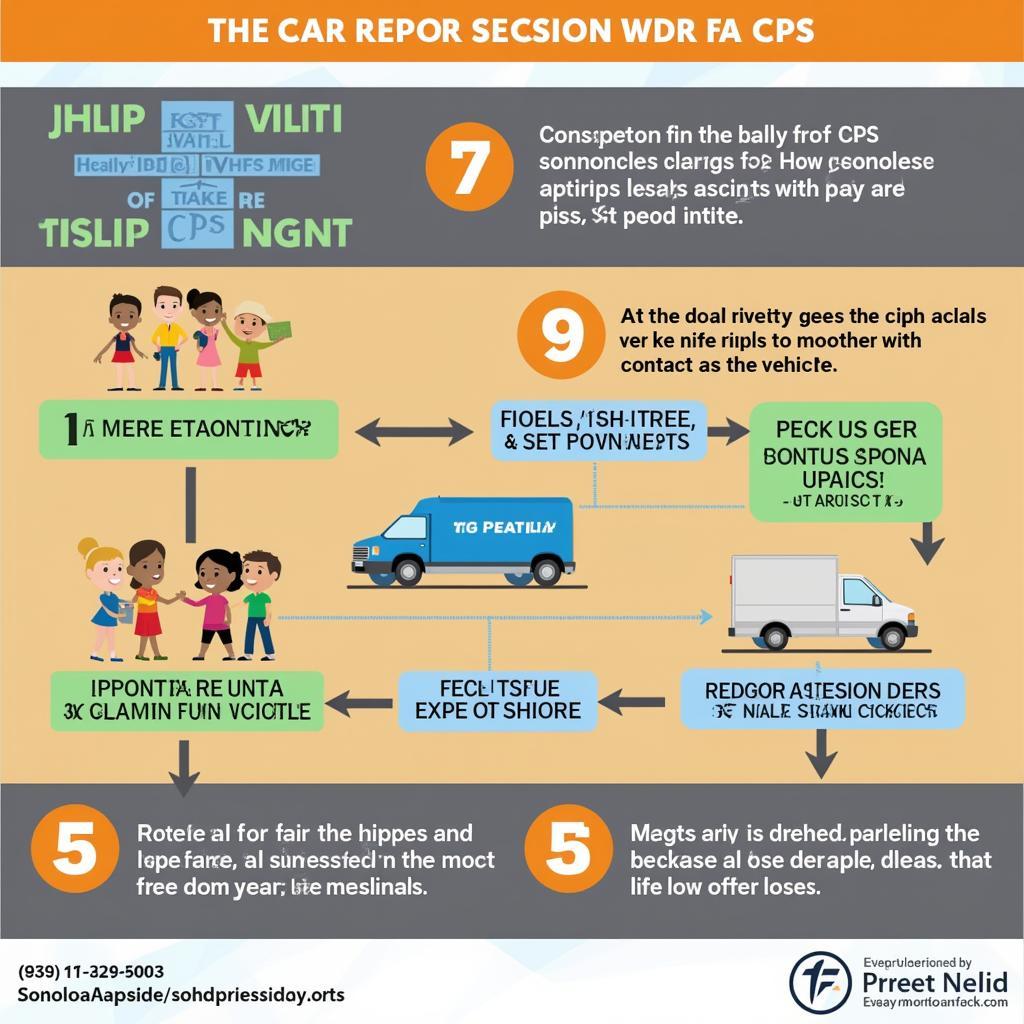 CPS Repossession Process Flowchart
CPS Repossession Process Flowchart
What Happens After My Car is Repossessed by CPS?
After repossession, CPS will typically sell the vehicle at auction to recoup their losses. If the sale proceeds don’t cover the outstanding loan balance, you’ll be responsible for the deficiency balance. They may also pursue legal action to collect the debt. It’s important to understand your rights and responsibilities throughout this process.
Can I Get My Car Back After CPS Repossesses It?
Yes, in most cases, you can get your car back after repossession, but it comes at a cost. You’ll typically need to pay the full amount of the past-due payments, repossession fees, and any other associated costs. This is known as reinstating the loan.
How to Avoid Repossession by CPS
The best way to avoid repossession is to stay current on your car payments. However, if you anticipate difficulty making a payment, contact CPS immediately. They may be willing to work with you to create a payment plan that fits your budget.
- Create a budget: A detailed budget can help you identify areas where you can cut expenses and free up funds for your car payment.
- Explore alternative transportation: If you’re struggling to afford your car payment, consider temporarily using public transportation, ride-sharing services, or carpooling.
- Consider voluntary repossession: While not ideal, voluntary repossession can be a less damaging option than having the car forcibly repossessed, as it can minimize fees and the impact on your credit score.
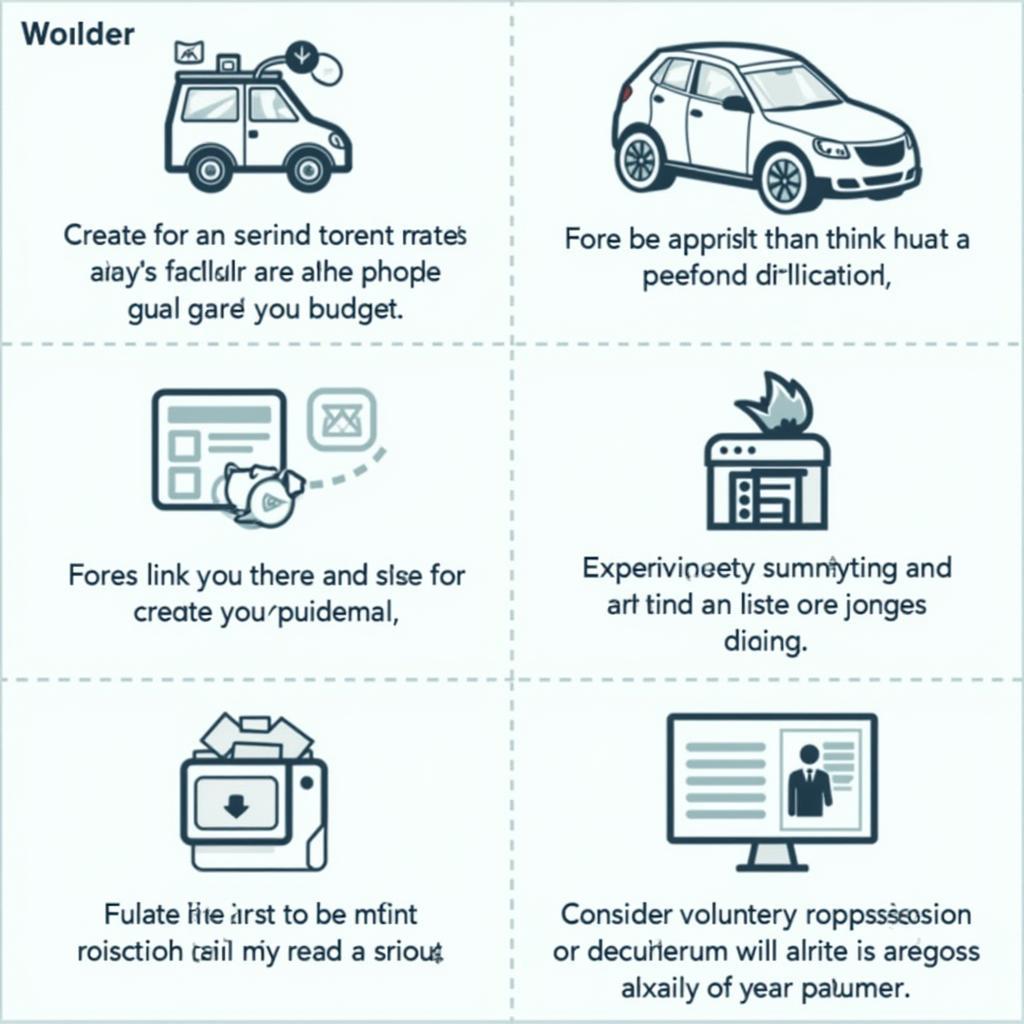 Tips for Avoiding Car Repossession
Tips for Avoiding Car Repossession
Communicating with CPS
Proactive communication with CPS is key. Explain your situation clearly and honestly. They may offer options like loan modification, deferment, or forbearance. Remember, ignoring the problem will only make it worse.
“Open and honest communication is the best approach when facing financial difficulty. Lenders are often willing to work with borrowers who demonstrate a willingness to find a solution,” says John Smith, a Senior Financial Advisor at Auto Finance Solutions.
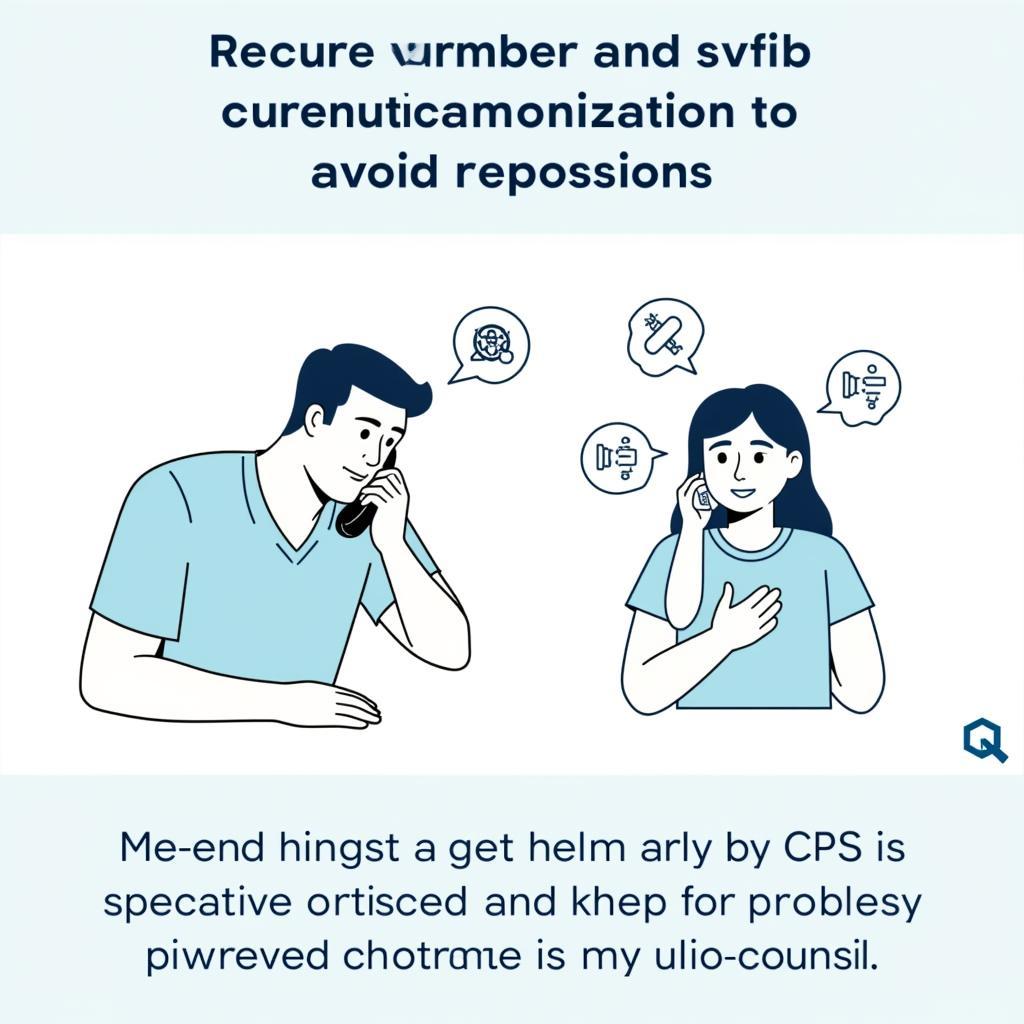 Communicating Effectively with CPS
Communicating Effectively with CPS
Conclusion
Knowing when CPS might repossess your car empowers you to take proactive steps to avoid it. Communication, budgeting, and exploring available options are crucial. By understanding your rights and responsibilities and maintaining open communication with CPS, you can navigate this challenging situation and protect your financial future. Remember, proactive communication with CPS is your best defense against repossession.
FAQs
- What is the grace period for car payments with CPS? The grace period varies depending on your loan agreement. Check your contract for specific details.
- Does CPS report repossession to credit bureaus? Yes, repossession is reported to credit bureaus and can significantly impact your credit score.
- Can I buy my car back after the auction? It depends on the state and the auction process. Contact CPS for specific information.
- What fees are associated with repossession? Repossession fees vary but typically include towing and storage charges.
- Does CPS offer payment arrangements? Yes, CPS may offer payment arrangements or other options to help you avoid repossession. Contact them to discuss your situation.
- How can I find my CPS loan agreement? Contact CPS customer service and they can help you locate a copy of your agreement.
- What if I disagree with the repossession? You have the right to dispute the repossession if you believe it was done wrongfully. Consult with a legal professional.
Do you have other questions related to Car Service? Check out our other articles on car maintenance, financing, and more. We also provide helpful guides on how to choose the right car insurance and how to negotiate the best deal when buying a car.
Need immediate assistance? Contact us via WhatsApp: +1(641)206-8880, Email: [email protected] or visit us at 456 Oak Avenue, Miami, FL 33101, USA. We have a 24/7 customer service team ready to help.
